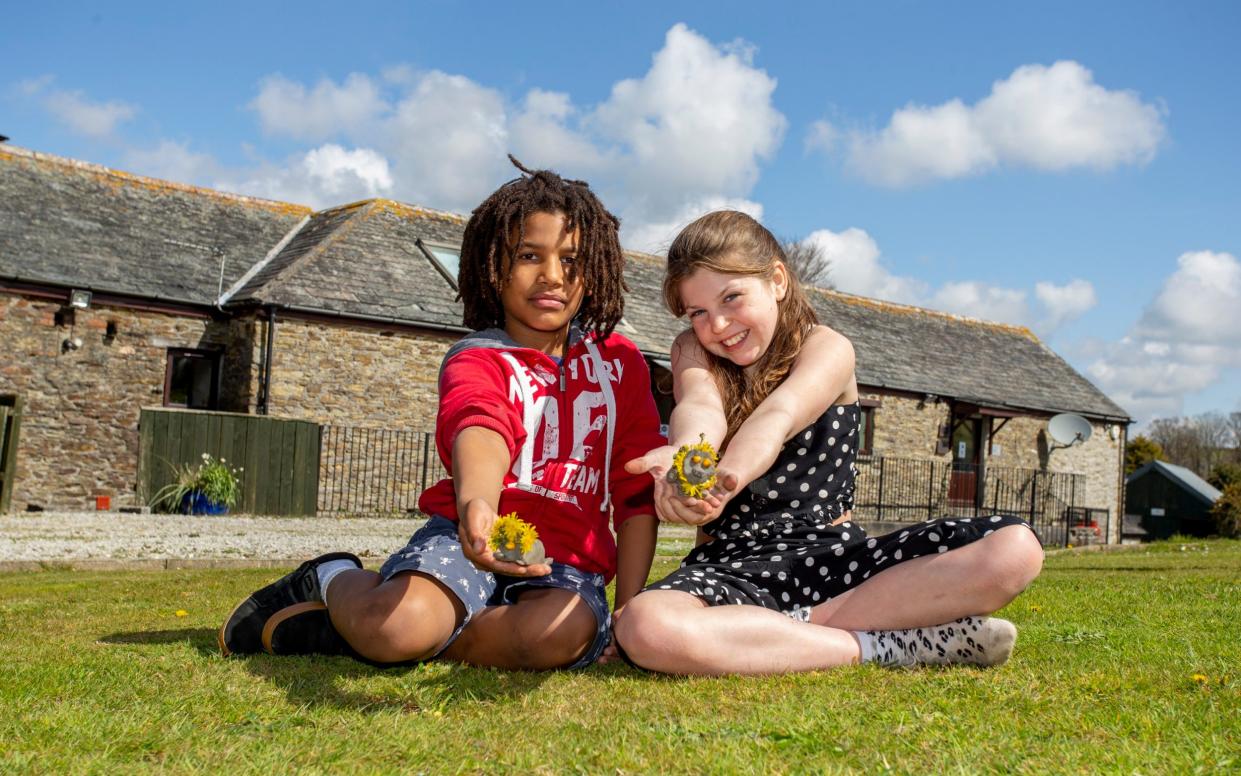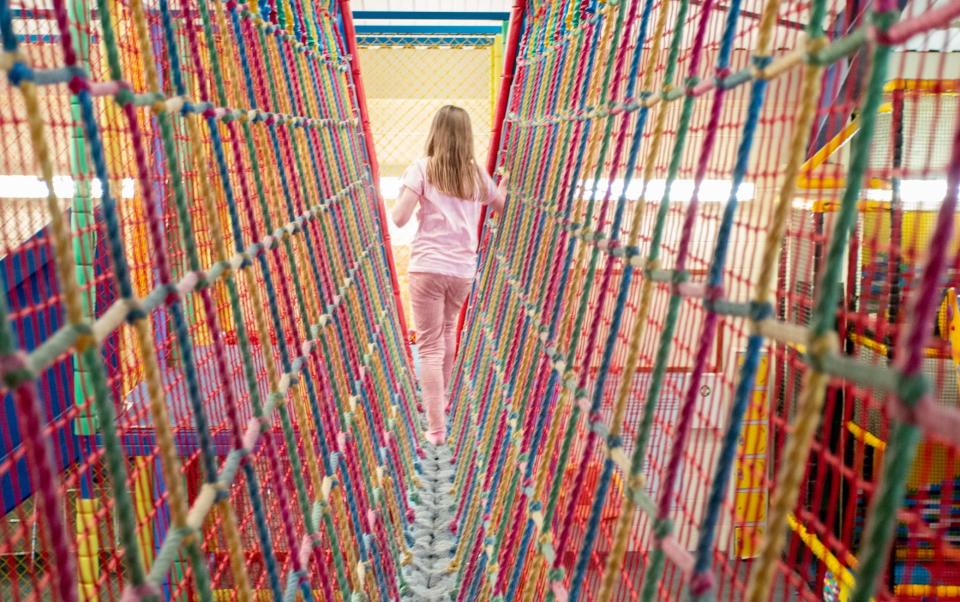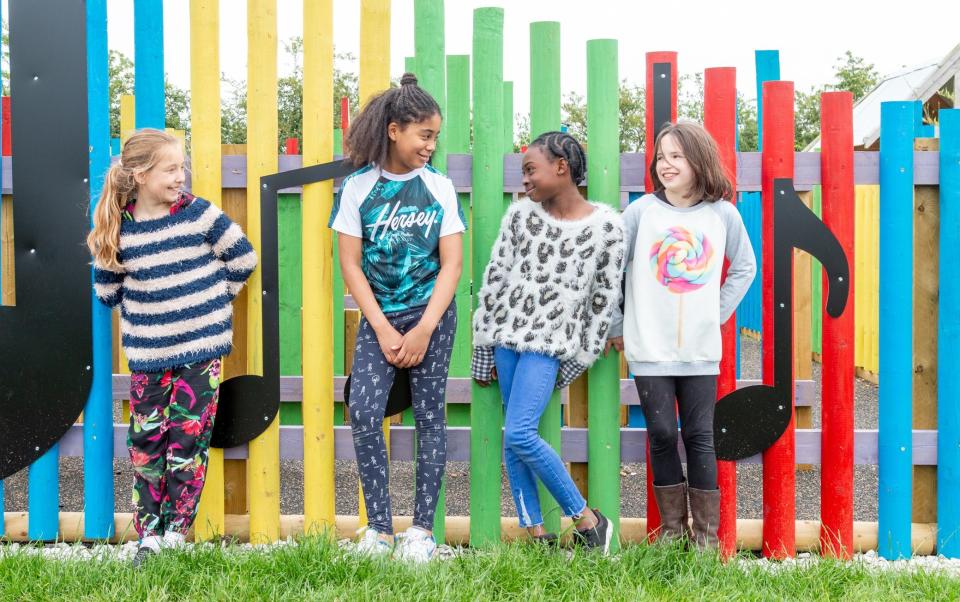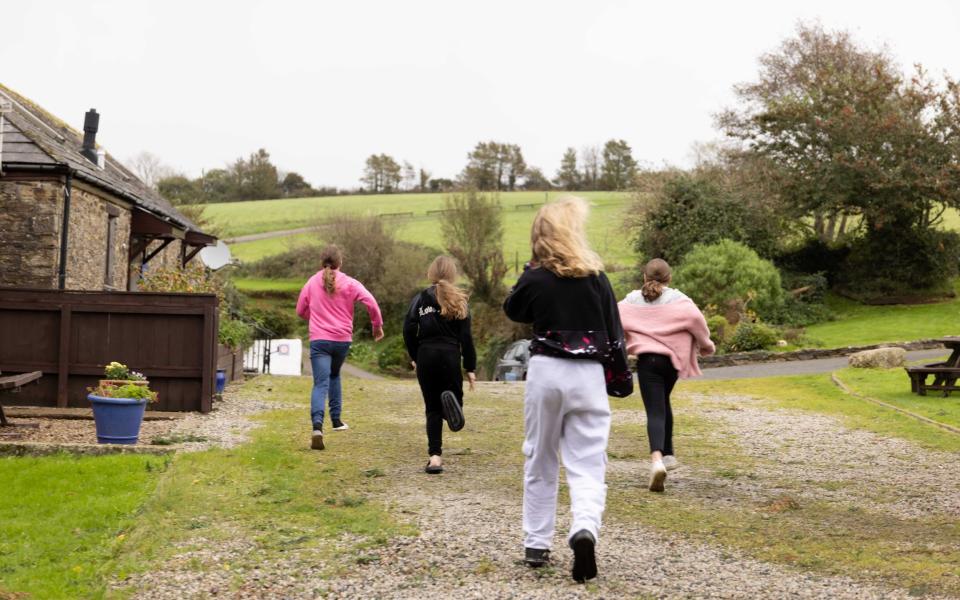How to help when your child can’t make friends

- Oops!Something went wrong.Please try again later.

Christmas Charity Appeal 2023
Support our four chosen organisations
We all know that spending time with good friends makes us feel happier. It can also give us a greater sense of purpose, and even boosts the immune system and life expectancy. But social connections shift from being desirable to crucial when it comes to children and teenagers, when friendship gives them a sense of acceptance and belonging and supports the development of compassion and empathy.
Sadly, in recent years, economic and social instability has meant that many children are losing their natural ability to make friends and are suffering for it, with Covid and the cost of living crisis being dominant contributing factors.
Children’s charity Go Beyond, which provides free residential breaks for vulnerable children, and is one of the charities supported in this year’s Telegraph Christmas Charity Appeal, states that since January 2023, 14 per cent of children were reported as being lonely or isolated during their referral process, more than 15 per cent had low mood or depression, and 26 per cent suffered with anxiety.

Beth Parnell, a senior break leader at Go Beyond, says, “We are seeing more and more children that are struggling to socialise in person. They missed out on so much of school with lockdown and now parents can’t afford to go out to attractions or pay for clubs.”
Social media and online gaming play a part, too. “No one is interacting face to face, where you need more skills, even something as simple as eye contact,” says Parnell.
“Everyone needs a friend or two in childhood,” agrees Steve Biddulph, psychologist and best-selling author of The Secret of Happy Children. “They are someone else who likes and values us, which matters for our self-esteem. And we learn and grow from negotiating the conflicts or differences along the way.”
And studies have shown that when children don’t have friends it can literally hurt, with brain imaging suggesting that the same parts of the brain are activated by social rejection as by physical pain.
So, when the importance of having friends cannot be underestimated, how can you help if you have a child who cannot make any?
Tips for helping your child make friends:
Know your child
All children vary in temperament, so what kind of child do you have? How do they play with others? Are they shy and fearful or perhaps too rough and not great at sharing? If you don’t have an opportunity to observe this yourself, ask their teacher how they behave in the classroom.
“Some children are happiest with just one or two special friends; some, usually girls, seem to like a wider group,” explains Biddulph. “Boys can form a group that is not so bonded and more loosely associated around activities.”

Knowing your child will help you work out what social skills you need to help them with, and what kind of friendship they are lacking or interested in.
Coach social skills
Talking to your child about what makes a good friend is essential. With younger children this might mean exploring examples in everyday life using television or books, such as Friends by Rob Lewis, and covering the fundamentals, like sharing. For older tweens and teens, coach them and practise social arts, such as how to handle introductions and ask ice-breaker questions.
“Two-way conversation is so important,” explains Go Beyond’s Parnell. “Observe and notice what that person is doing or interested in and ask them about it. It can be as simple as what football shirt they are wearing.”
Introduce a skill for life such as journaling so they can handle their own negative emotions. Teach them how to show sympathy, how to genuinely apologise, and in turn show understanding and forgiveness.
Work on confidence
Shyness and social anxiety can be disasters for forming new friendships. Work on their confidence at home by encouraging them to figure out solutions for themselves. Spend time investing in activities that they are naturally good at for easy boosts in self-esteem.
When your child starts to take steps towards making new connections, be supportive and upbeat. “Acknowledge the positive behaviour that child is showing towards their peers,” says Parnell. “Tell them how kind it was of them to share, or how nice they were to ask them about their pet.”
Get offline
Social media has changed the world – and our sense of community – forever, and 70 per cent of teenagers believe that it actually helps them stay more connected. While girls may favour Snapchat and Instagram to communicate, boys tend to favour online gaming as a way of spending time with friends.
“However, online relating is no substitute, and in fact can displace real relating, if it is all they have access to,” says Biddulph. Make sure you have clear boundaries on how much time is spent online and keep devices out of their bedrooms. Encourage clubs that need to be attended in real life.
“With boys in particular, keep an eye out that they don’t become hermits from lack of sociability,” adds Biddulph.
Don’t rely solely on school
Encourage friendships beyond school by joining clubs such as Scouts or taking up a passion of theirs that will introduce them to a new set of peers. “Ideally if kids have one social activity or interest away from school, then it offers a different friendship ecosystem for them, perhaps with kids who are more their ‘tribe’,” says Biddulph.

Having multiple friends from different social groups also lessens the ups and downs of depending on just one friendship.
Make your home welcoming
Help by making your home a welcome base for friendships to blossom. “Offer some food, get to know their parents, build networks where the adults and the kids know each other and are comfortable,” says Biddulph. “A neighbourhood, in other words.”
Parnell agrees. “When new children arrive, ask simple questions to get them started, like: ‘What is your favourite ice cream flavour?’”

Christmas Charity Appeal 2023
Support our four chosen organisations
If conversation isn’t flowing so easily, she suggests having easy games such as Dobble or Uno on hand to encourage interaction. (You may have to sit in for the first round.)
And if you’re feeling brave enough, allow them to bake to encourage working as a team. “Activities like this mean they have a shared experience to reflect on and build the friendship,” says Parnell.
Encourage good judgment
Not all friends are keepers. Common hazards can be the yo-yo friend, who switches easily between warm and mean interactions. And while experts believe meanness in under-eights is unintentional, any older than this should be a warning sign to avoid.
Research shows that popularity really doesn’t matter, as children with fewer but closer friendships are shown to have lower levels of anxiety and higher self-worth than those in larger groups with superficial connections.
If your child is getting lost in the popular competitive group, encourage them to find a subgroup of individualist, non-conformist children who are much more accepting and warm-hearted. Every school has them.
Step back
Children need to form a sense of identity outside the family, particularly as teens. Step back and allow them space to spend time with their friends.
Worried about peer pressure? Research shows that friends are more likely to support each other’s efforts to do well, rather than encourage poor choices.
When your child comes to you to discuss their new connection, listen and ask encouraging questions, but keep it cool. Quizzing your children constantly about what is going on is only going to make them more private.
Finally, allow them to make the friends they want, not just extensions of your own social circle.
“Sometimes parents can try to matchmake too hard and try to mix in their best friends too,” explains Parnell. “Children are individuals. They need friends based on their own interactions and interests, not yours.”
Go Beyond is one of four charities supported by this year’s Telegraph Christmas Charity Appeal. The others are Race Against Dementia, the RAF Benevolent Fund and Marie Curie. To make a donation, please visit telegraph.co.uk/2023appeal or call 0151 284 1927

